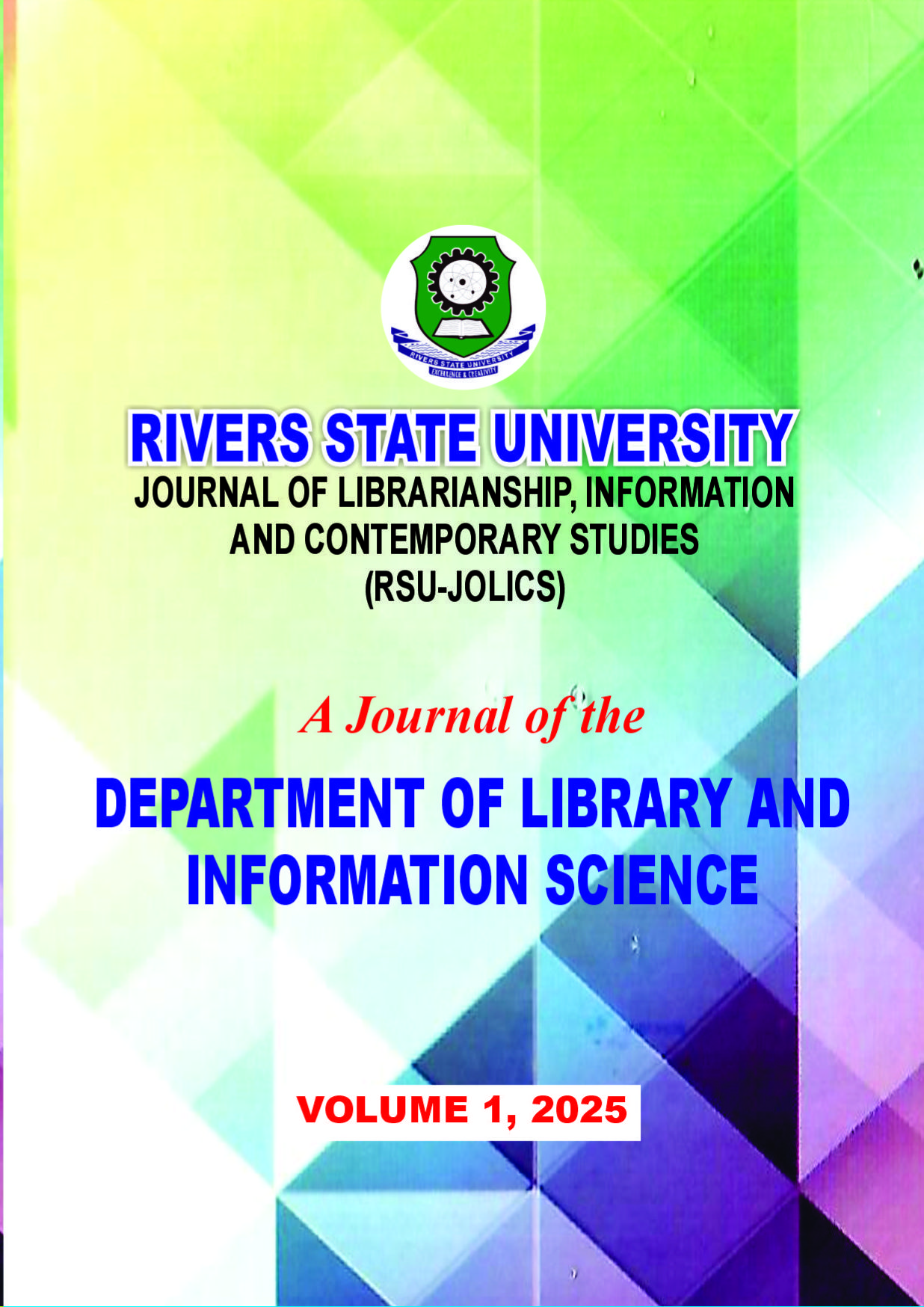Abstract
Abstract
This study examined the important role of school libraries in empowering education and contributing to national development in Nigeria. Specifically, it evaluated the impact of school library resources on students’ educational outcomes and learning experiences, investigated the extent to which school libraries support the implementation of the school curriculum, and assessed how school libraries promote literacy and critical thinking skills among students. The study adopted a descriptive survey research design. The population of the study comprised 5 teacher-librarians, 40 UBE teachers, and 38 senior secondary school teachers currently serving at County Grammar School, Ikwerre-Etche, bringing the total population to 83. The sample size of 69 was achieved using Taro Yamane’s formula with a 5% margin of error. Data were collected using a structured questionnaire and analyzed using simple percentage and frequency counts while Pearson Product Moment Correlation (PPMC) was used to test the hypothesis. The findings revealed that school library resources significantly enhance academic performance, support curriculum delivery, and contribute to the development of literacy and critical thinking skills. A strong positive and statistically significant relationship was found between access to library resources and students’ learning outcomes. Based on the findings, the study recommends that schools invest in the continuous improvement of library facilities, promote collaboration between teachers and librarians, and implement literacy programs that foster independent thinking among students. These actions are crucial for strengthening the role of school libraries in advancing educational quality and national development.
Keywords: School libraries, educational outcomes, curriculum support, literacy development, critical thinking, national development, Nigeria.



 National Library of Nigeria
National Library of Nigeria.jpg) Association of Nigerian Authors
Association of Nigerian Authors Nigerian Library Association
Nigerian Library Association EagleScan
EagleScan Crossref
Crossref